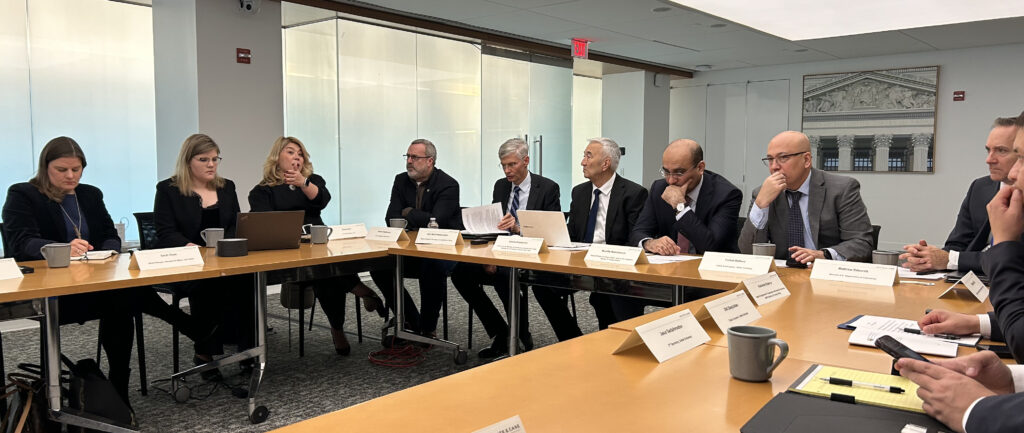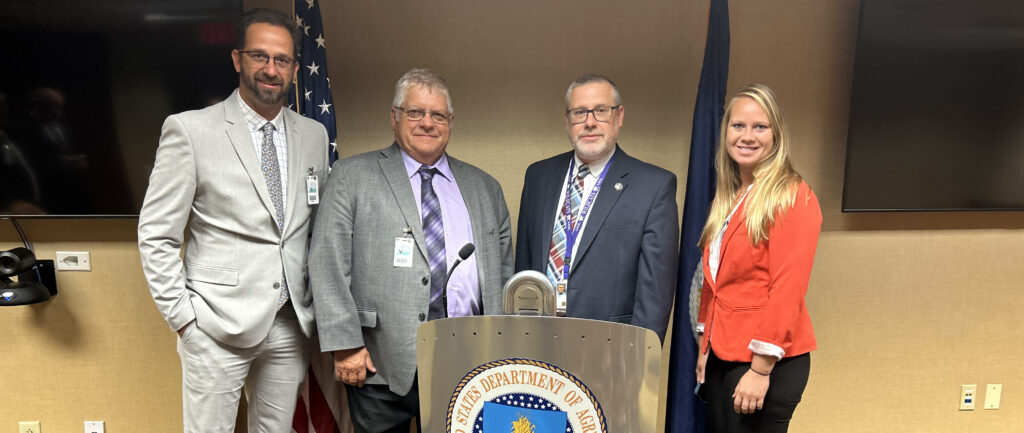The Minnesota Soybean Growers Association supports U.S. Representatives Angie Craig (D-MN) and Dusty Johnson (R-SD) introducing the bipartisan Strengthening the Agriculture and Food Supply Chain Act, which would create a dedicated task force designed to shore up the American food supply chain, increase government coordination and provide recommendations to Congress to prevent future supply chain issues. The bill is part of Rep. Craig’s continued effort to lower prices at the grocery store for working families.
“The Minnesota Soybean Growers Association appreciates Representative Craig’s leadership on this crucial issue,” MSGA Executive Director Joe Smentek said. “The past few years have shown us over and over that we need more attention paid to supply chain issues. Whether we are dealing with a barge hitting a bridge, or a worldwide pandemic, the U.S. agriculture industry and the supply chains it relies on need to run and fuel our economy.”
Craig’s legislation would create a task force at the U.S. Department of Agriculture that would be responsible for evaluating the stability and reliability of the agriculture and food system as well as identifying specific recommendations to improve the security, safety and resilience of the supply chain. The task force would be required to submit a report detailing its work and recommendations to Congress no later than 270 days after the enactment of the bill.
“Right now, Americans are justifiably frustrated by the higher prices they’re experiencing – whether that’s families checking out at the grocery store or farmers and business owners struggling with higher input costs,” Rep. Craig said. “In Congress, we must take immediate action to get products from ships to shelves faster – and to rebuild and strengthen our supply chains for future generations. I’m proud to lead my colleagues on both sides of the aisle in introducing this commonsense legislation to stabilize and strengthen America’s supply chains.”
Specifically, the Agricultural and Food System Supply Chain Resilience and Crisis Response Task Force would be responsible for:
- Evaluating the stability and reliability of the agriculture and food system supply chain by assessing:
- the strengths of the agriculture and food system supply chain;
- the weaknesses of the agriculture and food system supply chain;
- current and potential future critical bottlenecks in the agriculture and food system supply chain, including transportation bottlenecks in the distribution of agricultural inputs, processed and unprocessed food and food input products, and consumer-ready food products;
- workforce challenges and opportunities in the agriculture and food system supply chain; and
- Federal, State, and local laws and regulations that increase the stability and reliability of the agriculture and food system supply chain or decrease or otherwise negatively impact the stability and reliability of the agriculture and food system supply chain.
- Identifying specific recommendations to improve the security, safety, and resilience of the agriculture and food system supply chain, including recommendations that address:
- long-term strategies;
- industry best practices;
- risk-mitigation actions to prevent future bottlenecks and vulnerabilities at all levels of the agriculture and food system supply chain; and
- legislative and regulatory actions that would positively impact the security and resilience of the agriculture and food system supply chain.
- Submitting a report to Congress no later than 270 days after the enactment of the bill on the activities, findings, and recommendations of the Task Force.







